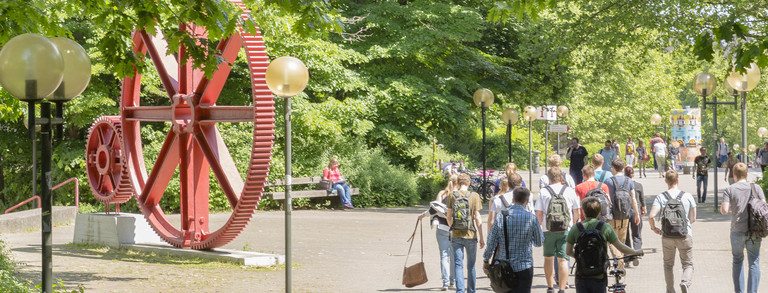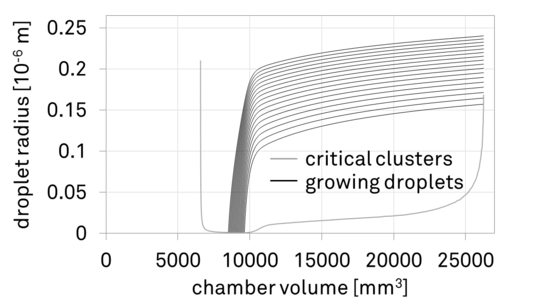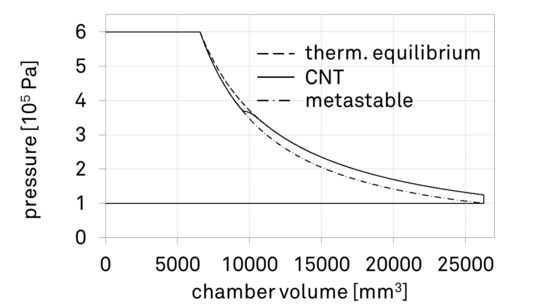Influence of condensation effects on screw expander operation
Content
Project description - Contact person - Cooperation / Funding
Project description
Simulation and experimental investigation of condensation phenomena in screw expanders
Processes without superheating of a vapourous working fluid might offer energetic advances, for instance in heat recovery with an organic-Rankine-cycle. In contrast to turbo machinery or reciprocating expanders, twin screw expanders are well adapted for operation with wet or saturated vapours. Liquid in the working chambers of screw expanders effects a partial seal of the clearances and lubricates the profile mesh.
When an supersaturated state of the vapourous working fluid is reached in the working chambers, condensate might emerge. In the scope of this project a simulation-based investigation of various condensation phenomena is carried out and the interactions between condensate and screw expander are investigated. Corresponding experiments are carried out on the steam test rig at the Chair of Fluidics.
Simulation results for an idealised screw expander cycle are shown in figures 1 and 2. The spontaneous condensation process during the expansion of saturated steam is simulated by means of classical nucleation theory. The consideration of a non-equilibrium condensation process in the simulations shows a lower chamber pressure during the early expansion phase compared to the simulations performed in thermodynamic equilibrium. The corresponding history of droplet growth is depicted in figure 2. Classical nucleation theory provides information on the expected droplet size during the expansion of vapourous fluids.
Contact person
Cooperation / Funding
This project is funded by the TU Dortmund.



